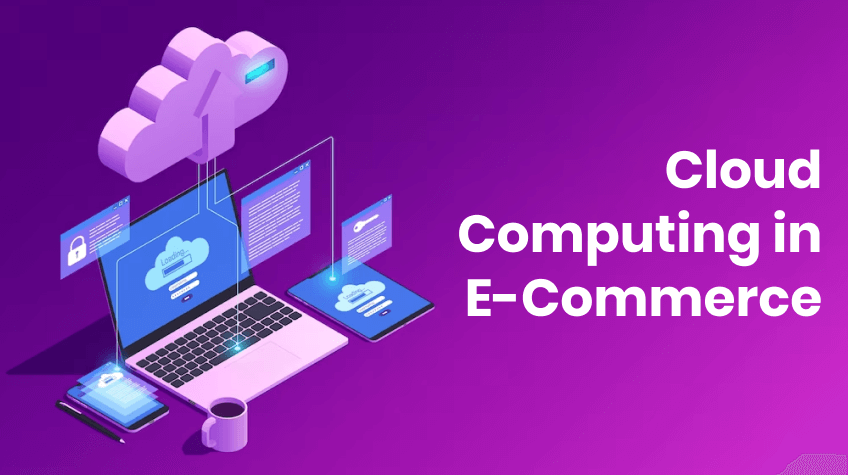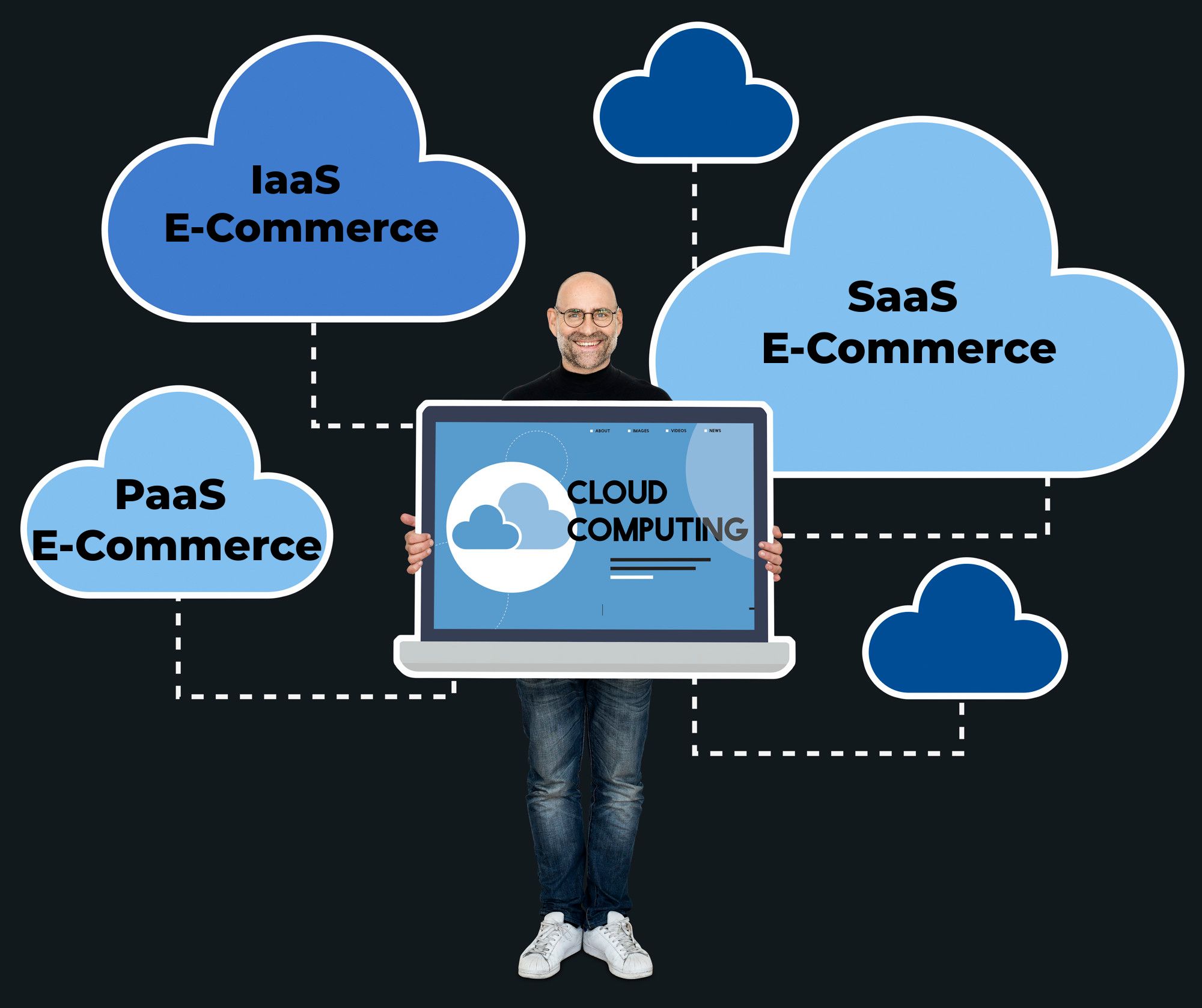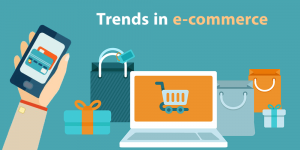
Gone those days when you had to buy everything at the market. But today, that’s not how it is. Today, we are in an era of online business, popularly known as e-commerce. More and more people are now choosing online business platforms to sell or market their products or services. The trend of e-commerce cloud has increased tremendously ever since the outbreak of the COVID-19 pandemic. Since then, many businesses have established their e-commerce sites and started selling their products online.
Undoubtedly, there are a lot of benefits to having an e-commerce site. You can reach out to more and more of your target audience. However, it is crucial that you stay up-to-date with the new technology coming up to enhance your e-commerce business. And one such technology is the e-commerce cloud.
Want to know more about it?
If yes, then read this post until the end.
We will discuss everything that you need to know about the e-commerce cloud in this post.
So, without any further delay, let’s get started…
Table of Contents
- Why Is It Essential To Know About E-Commerce Cloud?
- E-Commerce: The Digital Journey
- Cloud: An Overview
- What is the E-Commerce Cloud?
- Why Is Cloud A Good Fit For E-Commerce?
- How Is Cloud Used In E-Commerce?
- Cloud Models for E-Commerce
- HOSTING SERVICE 1: IaaS E-Commerce
- HOSTING SERVICE 2: SaaS E-Commerce
- HOSTING SERVICE 3: PaaS E-Commerce
- Successful Strategies for Cloud Adoption
- Benefits of Cloud in E-Commerce
- Effective Ways to Enhance Your E-Commerce Sites
Why Is It Essential To Know About E-Commerce Cloud?
Want to empower your business? Then, you must know about the e-commerce cloud. It is the best and most efficient way to STAND OUT in today’s modern era.
Don’t you know anything about the e-commerce cloud? No worries! This article gives you a detailed idea of this topic and helps business owners expand their organizations.
Keep track of the details because, at last, you’re going to unveil some secrets about e-commerce. So stay tuned!
But why does an owner switch to e-commerce? Is it that important? Obviously, it is. In this multi-device era, many users are fond of the most convenient option: online shopping.
Whether it is home utensils or surprising a birthday baby, for everything, people rely on virtual shopping. In that instance, still sticking to the old tradition of witnessing a new dawn is impossible. As business owners, you need to uplift your standards and upgrade your physical stores into digital ones.
What’s your thought? Will it be easy? People might say it’ll be tougher and even impossible. However, the truth is that opting for advanced techniques and integrating the latest technologies reduces your burden. Also, it effectively enhances your business to the next level within a short period of time. Therefore, business owners need to opt for advanced e-commerce cloud technology and expand their organization.
Let’s now know about the e-commerce cloud and how it is used in business.
Without any further delay, let’s delve in!
E-Commerce: The Digital Journey
In this multi-device era, digitalization is crucial to embracing success. Whether you want to be a successful entrepreneur or uplift your established business, you must adapt to the digital realm. It clearly means owners need to establish their business online and offer a seamless experience to users globally. And the first step towards online business is to have a beautifully developed website.
You can approach a digital marketing agency or a well-versed team of developers who craft a website based on your business needs. Having a well-developed website can help you succeed in your e-commerce journey. However, many online business owners are already running their businesses online and serving customers worldwide.
As a business owner, ensuring essentials for e-commerce sites is undeniably important. So, step forward to establish a robust online presence through well-designed websites. And embrace the latest technologies, like the Cloud, to enhance your business standards digitally.
Now, it’s time to know about the relationship between Cloud and e-commerce and how Cloud is used in e-commerce to elevate the user experience. Thus, keep exploring the upcoming sections and boost your knowledge of the e-commerce cloud.
Cloud: An Overview
Most probably everyone heard about cloud technology; even if not, don’t worry; you’ll get an idea after exploring this section. It is a trending technology that allows users to access computing services over the Internet rather than hosting services on their own.
Cloud services include storage, accessing databases, analysis, etc. In simple words, this technology cuts off the need for server rooms in several IT companies and offers a more convenient experience for the users. Having data in the Cloud helps you save a lot of time. Moreover, it helps you access your data from anywhere at any time.
Now, it’s time to learn about the e-commerce cloud.
What is the E-Commerce Cloud?
In simple terms, an e-commerce cloud refers to the utilization of cloud services for storing, managing, and processing data via the Internet. In addition, users can utilize an Internet or Wi-Fi connection to access their data, make purchases, and engage in various other activities.
The e-commerce cloud enables the seamless execution of a specific set of services. Some important features to consider are payment processing, security measures, a mobile-optimized website, and seamless integration with other systems. The e-commerce cloud should provide a range of services to cater to both business owners and potential customers.
Why Is Cloud A Good Fit For E-Commerce?
As mentioned earlier, multiple services are provided during each interaction. To give an idea, consider three customers from different parts of the globe, and each of them is accessing the same product but taking different actions. For instance, the first person adds a product to the cart, the second person purchases it, and the third person views the product description.
In this case, all three are potential customers for the owners. It is the responsibility of an owner to ensure that all products are made available promptly. Delays in the process can dissatisfy the customer and make them leave the site instantly. How will it offer a seamless user experience? You can take the products from the stock when it is a physical store. But is it possible virtually? Yeah! Opting for the e-commerce cloud is the best option to enhance the user experience.
Integrating cloud technology allows users to perform many tasks simultaneously. In addition, the e-commerce cloud is a cost-efficient way to enhance business globally. For such reasons, the Cloud is considered a good fit for e-commerce and other digital services.
How Is Cloud Used In E-Commerce?
So far, you’ve explored some of the important factors about the Cloud in e-commerce. Now, we are going to share with you how the Cloud is used in e-commerce. Get ready!
Cloud computing is effectively used in e-commerce by outsourcing a network of servers that are hosted over the Internet for application services, processing, and storing data. The e-commerce cloud differs from the software installed on a local server.
It offers plenty of benefits to its potential users and that’s the reason it is emerging as the most innovative technology of this modern era. In addition, the Cloud provides users with three different services for their digital business. Business owners can choose them according to their requirements.
You’re going to explore about the different service models in the upcoming section. Stay tuned!
Cloud Models for E-Commerce

Cloud models allow retailers to manage their e-commerce needs, such as customer data, supporting customers, product catalogs, reliable web hosting, secure payment gateways, inventory management, etc. You can choose between these three hosting services according to your requirements.
1. HOSTING SERVICE 1: IaaS E-Commerce
Infrastructure as a Service concentratesm popularly known as IaaS e-commerce is a pretty popular hosting service. You can on-demand access to computing resources in this kind of hosting services. It is used to support web applications, including storage, networking resources, and application servers.
The key advantages of these services are that you can pay for what you use, enhanced speed and security, reduced capital expenditure, and custom-built PIMs (Product Information Management).
2. HOSTING SERVICE 2: SaaS E-Commerce
Software as a Service, popularly known as SaaS e-commerce, is a deployment model. Providers utilize this model to allow e-sellers to save on infrastructure setup and launch an e-commerce solution faster. If you’re opting to start the business digitally, then you can rely on this cloud infrastructure.
The highlighted features of SaaS cloud services include accessibility, operational management, cost-effectiveness, scalability, enhanced security, and data storage. Additionally, business owners have the ability to efficiently handle product catalogues, analyse user data, and manage customer relationships, as well as oversee order and payment processing flows.
3. HOSTING SERVICE 3: PaaS E-Commerce
Platform as a Service, also known as Paas e-commerce is yet another popular hosting services. This hosting service is quite similar to SaaS. It lets you configure your own website. It includes almost everything, from add-ons to other app development services. PaaS offers a virtual infrastructure such as servers, data centers, storage and network equipment, and an intermediate layer of software.
The main advantages of this model are cost-effective, time savings, future-proof, increased security, dynamic scale, custom solutions, and flexibility.
These are the three cloud models; continue exploring to keep yourself engaged with successful strategies of cloud adoption.
Successful Strategies for Cloud Adoption
You got the idea about three different cloud e-commerce models. You need to choose the right strategy in order to successfully implement the Cloud for your e-commerce or business websites. Here are some of the most important steps to take before you choose a hosting service for your e-commerce platform.
1. Visualize
The first and foremost thing you need to ensure is determining your needs. Try to understand and do a self-analysis about where you are and what you need to do. Reconsider the primary reasons why you opt for cloud services.
Determine the goals that you want to achieve after establishing the e-commerce cloud for your business. It helps you to create a roadmap for a successful e-commerce journey.
2. Evaluate
It is the second phase, where you need to execute everything properly. Yes, you need to be very careful about the execution. For proper execution of cloud e-commerce, it is crucial to analyze your resources, architecture, and infrastructure. Also, make sure to outsource your requirements to the appropriate vendor and choose accurate infrastructure. Ensuring such things enhances your e-commerce cloud implementation journey.
3. Plan
Proper planning is a MUST. In this phase, you’re going to plan what you need to do and make sure you recall the importance of e-commerce cloud success. Prepare your own plan and include:
- A detailed timeline.
- Application integration plans.
- Data transfer strategies.
- The challenges or risks of the entire process.
- Effective planning can help you succeed in the process.
4. Execute
Once you are done with the steps above, it’s time to execute your strategy effectively. Execute according to the plan, test different scenarios, and perform load testing to validate the functionality of the e-commerce cloud. It is suitable for performing various operations, whether it is moving applications to the Cloud, setting infrastructure, or redeveloping a legacy product. Thus, ensure you follow the above-mentioned steps properly to get accurate expected results.
5. Optimize
Last but not least, once the cloud implementation is successful, you need to optimize it. Don’t think that cloud adoption ends with the deployment phase because effective optimization is the most important thing. Check the performance metrics, implement security updates, and create operational dashboards to maintain them regularly.
Following these things properly will ensure secure, efficient, and apt cloud infrastructure for your business requirements.
Let’s now take a look at some of the benefits of cloud e-commerce for business. Here we go…
Benefits of Cloud in E-Commerce
Well done! You have got enough knowledge about the e-commerce cloud! Finally, let’s talk about the advantages of using the Cloud in e-commerce that enhance your knowledge of the e-commerce cloud.
1. Global access
Presumably, you wish to take your digital business to larger levels. If yes, then there is no doubt that the e-commerce cloud is your best bet. E-commerce cloud can help you expand your business at global levels. It is easy for both retailers who maintain the critical information and users who search for high-quality products globally. Besides geographical location, the Cloud delivers services through worldwide data centres and uplifts business credibility and brand identity.
2. Flexible and Scalable
Cloud technology offers boundless flexibility and scalability. Even though the traffic is high or sales peak during festival seasons, Cloud effortlessly handles the high traffic and frequent transactions. Similarly, this operation takes place and vice versa, and during the slower times, the resources are scaled back to offer a seamless experience for users.
3. Cost-Efficient
The best thing about Cloud technology is that it eliminates the need for hardware investments. Potential cloud users can pay only for the resources that they utilize. Moreover, optimization is also simple. Thus, cloud technology is a cost-efficient method to establish your business worldwide.
4. Improved Security
With cloud e-commerce, you need not worry about the safety and security of your data. This is because Cloud providers always ensure regular security updates that match industry standards. They include advanced encryption, firewalls, access controls, and compliance certificates. All in all, cloud technology is the safest option. It offers robust security for your e-commerce websites and continuously monitors them to address potential threats or third-party attacks.
5. Seamless Collaboration
As mentioned above, the Cloud seamlessly collaborates and supports a distributed workforce beyond geographical locations. This means that people can access e-commerce sites from anywhere, whether they are employees or users. On the whole, integrating with the Cloud elevates productivity and offers an enhanced user experience.
Enough of cloud e-commerce! Up next, you are going to unlock some secrets about e-commerce. Thus, continue reading and enhance your knowledge about e-commerce.
Also Read: Unbelievable Business Benefits of Cloud Computing
Effective Ways to Enhance Your E-Commerce Sites
It is the appropriate section to reveal the secrets. Yes, the e-commerce cloud is a trending technology that offers abundant benefits to users. However, embracing advanced technologies without following effective strategies doesn’t have any value. By this, we simply mean to say that you must utilize these ways to enhance your e-commerce sites. So, don’t miss this bonus section, which provides unique ideas to elevate websites.
- Invest in your e-commerce site design.
- Optimize designs for mobile. This means that make your site responsive or mobile-friendly. This is because more and more people now use their handsets to scroll through various sites.
- Give seasonal offers, cash back, and free gifts to your customers.
- Make your site user-friendly and intuitive.
- Focus on navigation and add high-quality images of the product.
- Ensure consistency throughout the website.
- Offer live chat assistance for 24/7. It will help your customers feel special and taken care of.
- Enable reviews and ratings and address them professionally.
- Embrace social media and derive customized marketing strategies for your targeted users.
- Optimize for SEO and use keywords and tags.
- Analyse the overall website and track user engagement.
- Utilize diverse marketing elements and derive a customized strategy.
- Ensure regular updates. Nobody wants to visit an outdated site. In fact, outdated sites do not even rank on Google.
- Focus on increasing brand identity and credibility.
- Utilize user-centric approach when creating a site.
- Enhance the user experience.
- Offer a free trial without urging them to register.
Last Few Words
So, this is all about cloud e-commerce. We hope that this article has been informative for you. From this article, you can identify that adapting to cloud technology enhances the scalability, efficiency, and flexibility of e-commerce sites. Utilize this trending technology to uplift your digital business and offer an improved user experience for your potential customers.
Make them feel more comfortable, and ensure that you follow these effective ways to boost your e-commerce sites. Hope these meaningful strategies at the end help you provide your users with what they want from you. Lastly, think twice, act wisely, and create lasting footprints in this ever-evolving digital era by opting for the latest technology, e-commerce cloud.
Thanks for reading… 😊 😊






